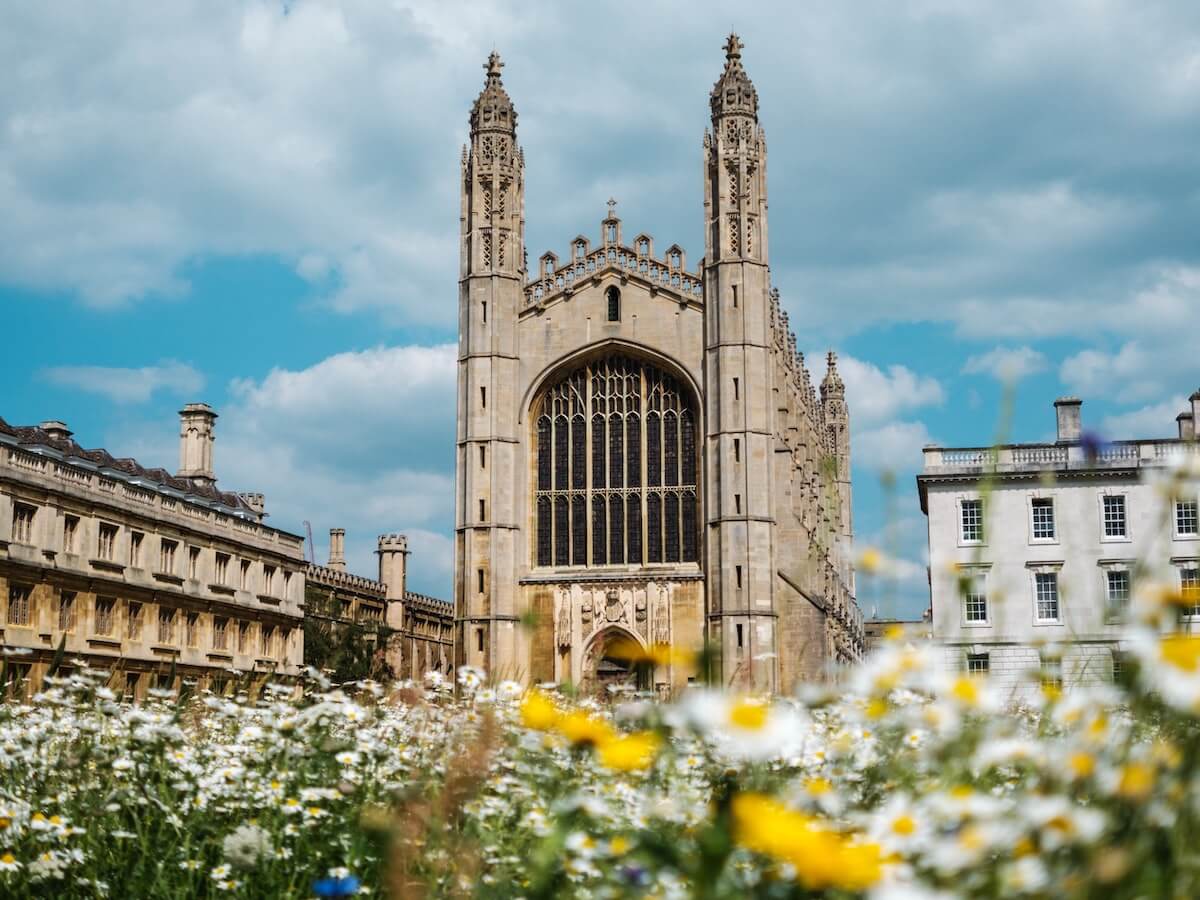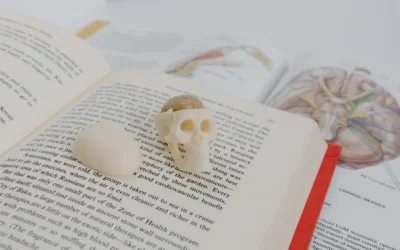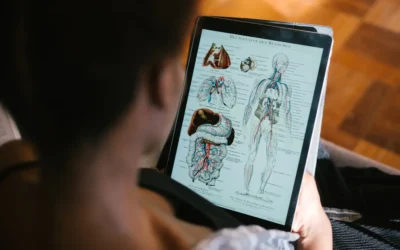Whether you’re still working out what and where you’d like to study, or you’re already set on applying to medical school in the UK, this whistle-stop tour of a day in the life of a Cambridge Medical student is sure to prove an interesting read.
The schedule might seem a little jam-packed, but the reality is a lot of fun – you get to learn some really interesting stuff while spending time with your friends, plus there’s lots of time on the weekends to blow off some steam.
This article was written by Diego, a sixth year medic studying at Cambridge University. Everyone’s days vary, of course, but he’s given us a real insight into the structure of his week, which will be helpful as you consider applying to medical school in the UK.
Rise and Shine!
At 7.30am my alarm goes off and I wake up (actually, let’s be real, it might be 7.50am by the time I wake up, after I’ve hit snooze a couple of times…). After a quick breakfast in College, I jump on my bike and fly through the morning mist. In the winter months, you might even be in time to see the sunrise – a very positive way to kickstart the day!
Down to Business
I then arrive at the New Museums or Downing Site just in time for my 9am lecture. The topic depends on which year you’re in, and might cover anything from anatomy and biochemistry to pharmacology or physiology. Lectures at Cambridge tend to last approximately 50 minutes, and I usually bring the handout that I’ve printed the night before. This is very useful as it makes it easier for you to actually engage and take notes – otherwise it’s easy to drift away and you might be taking an accidental nap before you even realise!
Refuel: Coffee Break
After the lecture, a coffee break is often necessary. The Whale Café is perfectly placed to meet this need. I have around half an hour to get my daily intake of caffeine, and while I’m drinking I’ll usually go through the notes for my practical class at 10.30am.
Practical Classes
Practical classes are usually held in the Physiology, Development & Neuroscience or Biochemistry laboratories, or the Anatomy Dissection Room. If do you have a morning dissection class, you need to have a solid breakfast – the last thing you want is to faint!
Practical classes are very interesting, interactive, and they allow you plenty of time to repeat experiments in the likely event they don’t work on the first attempt. If you’re considering applying to medical school, it’s worth considering how much practical exposure you’d like, as it can vary quite a lot between schools.
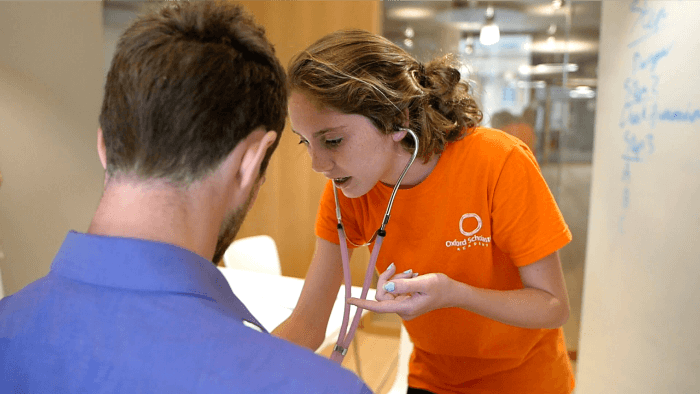
Refuel #2: Lunch Break
After the morning’s practical class, I’m free to have lunch. I usually cycle back to my accommodation or get some amazing street food from the market in town. The Great St Mary’s church bells chime at 1pm, signalling that I have around an hour left before my 2pm supervision. I usually sit in a café in town, either taking a break from medicine with some fiction or poetry or, if I’m feeling particularly inspired, doing some clinical questions and making notes on high yield topics.
What Are Supervisions Like at Cambridge?
Supervisions (also known as tutorials at Oxford) are characteristic of the Oxbridge teaching style, so if you’re thinking of applying to medical schools at either of these universities, it’s a good idea to know what you’re letting yourself in for.
They take place in small groups, with a tutor, and we talk through the content of the morning lectures and practical classes. Tutors like to ask lots of questions, so make sure you are well-prepared before walking in the room. As a Cambridge medical student, you would usually have one supervision a day, but that can go up to two or three, especially during exam preparation periods.
Library
After my supervision, I’ll walk to a library to do some work. There are so many libraries in Cambridge, and each of them is prettier than the last. The University Library, the Haddon Library, and the Biochemistry Library are some of my personal favourites; these are perfect places to sit and perfect that neuroscience essay due tomorrow. It’s also worth noting that the libraries have an impressive range of the best books for medical students, so you won’t need to worry about buying them for yourself.
In a regular week as a Cambridge medic, you’re expected to write at least three essays, usually set by your tutors in supervisions. Although this may sound like a lot of work, I find essay writing is an amazing way to revise and remember key concepts. In addition, the essay titles set as coursework may well come up in the exam.
When you need a break, you can get coffee in the cafeteria or have a stroll in the outdoor cloisters, or even take a look at the dusty philosophy section of the library and be relieved that you applied to medicine.
After Hours
Around 5pm, after a solid day of work, I usually go swimming, or engage with one of the many societies I have signed up to. Sports and societies are the best way to make friends in the hectic academic environment at Cambridge. There are loads of things on offer: plenty of gyms, swimming pools, and performing arts venues, where you can hang out with people and steam off a bit.
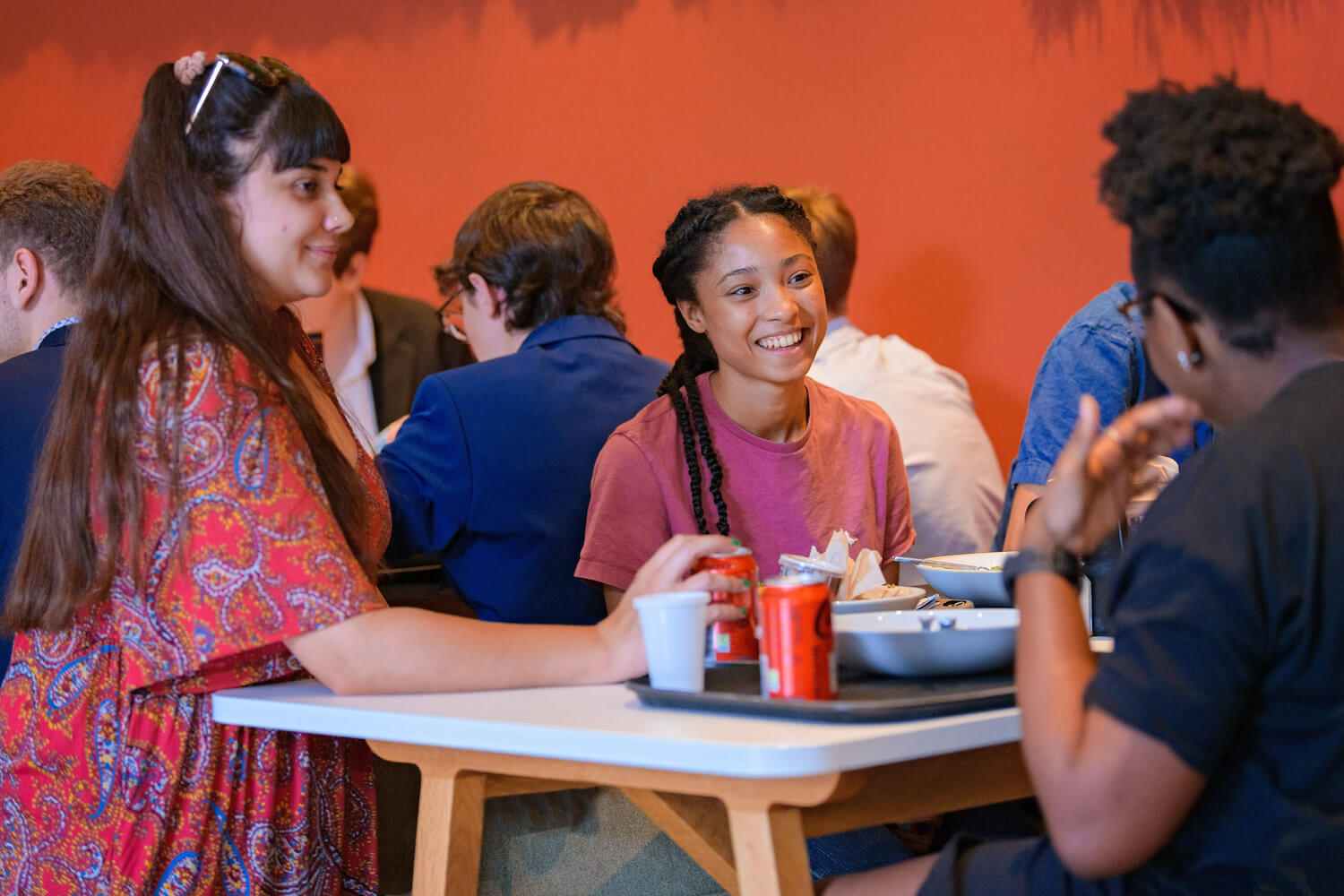
Refuel #3: Dinner Time
Then my favourite time of the day comes – dinner! On Tuesdays, Thursdays and Fridays a formal dinner is hosted in my College, offering us a chance to dress up, wear our gowns, and indulge in a three-course meal. Formal Halls are very interesting moments in the life of a Cambridge student – you may well end up chatting to a Nobel Prize winner whilst making a start on the first course. If you don’t fancy the formal experience (and that is certainly me most days, especially when exams are creeping closer!) a quick, more casual dinner in the cafeteria can save you the hassle of cooking and then doing the dishes.
Evenings
After dinner, I usually FaceTime my family. It can be very hard being far from home, particularly as an international student, so I find this virtual family time really important. That said, there are lots of other activity options in the evenings, from social events to pub trips to film nights with friends.
The lazy evening time can also be used to finish off your essays or read ahead on notes for tomorrow’s lectures and practical classes – although never beat yourself up for taking time off instead.
A well-deserved good night’s sleep is now on the schedule; I try to allow at least seven hours, although some nights that’s more realistic than others.
This is, in a nutshell, a day in the life of a medical student at the University of Cambridge. You have to be organised, disciplined, and prioritise your time to keep on top of your academic commitments – there’s no hiding that – but there is also plenty of opportunity to engage in social and restful activities.

By Diego Balassini
Diego is a practising junior doctor, having graduated from Cambridge University and Barts and the London School of Medicine. His undergraduate thesis focused on cancer biology and therapeutics. He is planning a career in reconstructive and plastic surgery, hoping to draw together innovations from tissue bioengineering, regenerative and stem cell research.

